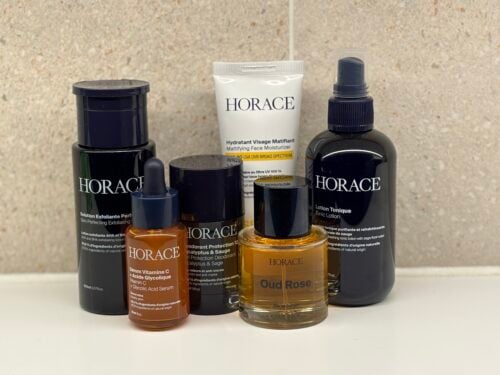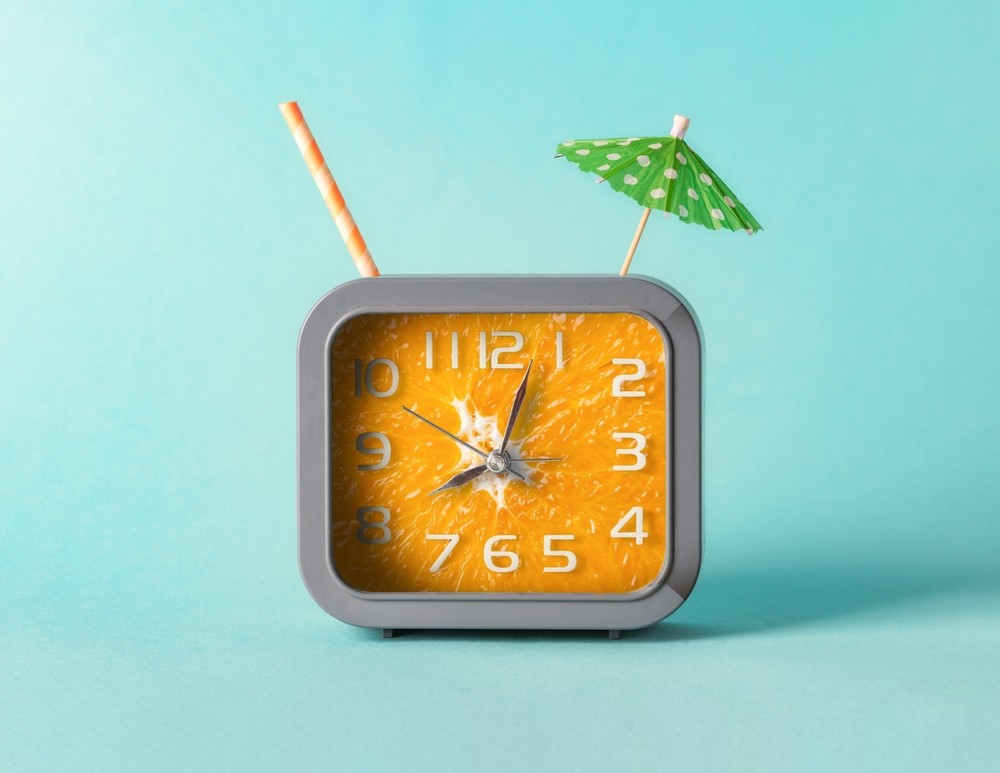Horace Skincare Review: Why Horace Is Dominating The Modern Man’s Bathroom Cabinet
Feb 21, 2026Business Formal for Men: Acing the Dress Code
- Jul 27, 2023
- 0 Comments
455

Business formal for men is not just about looking sharp—it’s about creating a personal brand that reflects professionalism and competence and the company’s culture. Navigating the world of business formal attire can be quite the challenge, but with a bit of guidance and a keen eye for detail, you can make a lasting impression.
Understanding Business Formal
Business formal, often called boardroom attire, epitomizes professional dressing. This tier of dress code is typically reserved for high-level corporate events, important meetings, and job interviews in traditional business environments.
The Importance of Business Formal
Adhering to the business formal dress code is crucial for several reasons. First, it conveys your professionalism and commitment to your role. Second, it aligns with the company’s image, especially if it’s a traditional or conservative organization. Lastly, dressing appropriately can boost your confidence, helping you perform professionally.
The Building Blocks of Men’s Business Formal
The foundation of business formal for men is a well-tailored, high-quality suit. A two-piece suit in dark hues of black, navy blue, or charcoal grey is the standard choice. Ideally, the fabric should be wool or a wool blend, offering excellent draping and longevity.
The ensemble’s sophistication can be heightened with a solid color or subtly patterned weave-like pinstripes or checks, provided they are not overpowering. While a mix-and-match approach may seem professional, it tends to lean more toward business casual and may not be suitable for all scenarios.
Single-breasted or Double-breasted Suit?
The distinction between single-breasted and double-breasted suits is critical when curating your business formal wardrobe.
Single-Breasted Suits: These are more common and versatile. They feature a single column of buttons and a narrow overlap of fabric. This style is universally flattering and appropriate for most business formal occasions.
Double-Breasted Suits: These have two button columns and a wider fabric overlap. They project a sense of authority and tradition but may not be suitable for all body types or events due to their more formal and bold appearance.
Your suit is a reflection of your brand within a professional context. By understanding the subtle connotations of each style, you can choose a suit that best aligns with your brand, your body, and the occasion at hand.
The Art of Choosing the Right Shirt
While the suit lays the groundwork, the shirt you pair it with can make or break your look. A crisp white shirt is a foolproof choice, but don’t shy away from other solid colors. Light blue, for instance, is another popular choice. Subtle pinstripes that coordinate with your suit can also work well, provided they are not too distracting.
Fit is paramount when it comes to shirts. It should be well-fitted, not baggy around the arms or waist, and the neck opening should be comfortable, allowing the top button to be fastened.
Neckties: The Essential Accessory
No business formal attire is complete without a necktie. It’s not just a piece of fabric; it’s a powerful tool that can subtly communicate your personality. The range of colors and patterns for ties is vast, but remember to keep it professional. Solid colors or subtle patterns on a dark background are acceptable choices. For example, small repeating patterns or diagonal stripes in complementary shades work well.
Specific colors are believed to be project-specific personality traits. For example, a red tie is often associated with power and precision, while blue signifies trustworthiness and creativity. However, excessively vibrant patterns like polka dots, paisley, or plaid should be reserved for less formal business settings.
Formal Layers
In business formal attire, layering can enhance your sophistication and adaptability to various climates and seasons. It’s not just about adding pieces—it’s about creating a harmonious ensemble.
Waistcoats: Waistcoats, or vests, are an excellent tool in your layering arsenal. This third piece can elevate your look with a two-piece suit, signaling meticulous attention to detail. Generally reserved for special occasions or ultra-formal business settings, the waistcoat should mirror the color and fabric of your suit for a cohesive look.
Overcoats: Overcoats are your ally in colder weather. An essential outer layer, they add a layer of warmth while maintaining the business formal aesthetic. Black, navy, or charcoal grey overcoats, ideally in wool or wool blends, are recommended for their blend of function and form. The overcoat should be long enough to cover your suit jacket but not so long that it restricts movement.
Remember, the key to successful layering is balance and moderation. All pieces should work together to create a seamless, professional image, adaptable to both the boardroom and the elements.
Dressing Your Feet: Socks & Shoes
While it’s easy to overlook, footwear is crucial in completing your business formal look. High-quality leather shoes are necessary; lace-up or wingtip designs are the most common choices. Neutral colors like black or brown are best, and rubber soles are a strict no-no.
Socks are another essential aspect of your attire. They should match the color of your pants and be long enough to cover your skin when you sit down or cross your legs.
The Importance of Accessories & Grooming
Business formal goes beyond mere clothing. The devil is truly in the details, whether accessories or grooming habits.
Accessories: A crucial component of your look is accessories. A simple, elegant watch and a wedding band are ideal jewelry pieces if applicable. Non-traditional items, like earrings or piercings, may be less suitable in formal business settings.
Hair: Maintaining well-kept and clean hair styled professionally goes a long way in enhancing your business formal look. Timeless, conservative hairstyles are usually a safe bet.
Facial Hair: Should you sport facial hair, it must be neat and well-shaped. Alternatively, a clean-shaven look never fails in most business formal situations.
Fragrance: When it comes to fragrance, less is more. A subtle scent can add an extra dimension to your brand. However, it’s crucial to steer clear of strong cologne or aftershave, which can be overpowering.
Hands and Nails: Pay attention to your hands as well. Clean, trimmed nails are a must, hinting at your overall cleanliness and attention to detail. A professional manicure can be a great way to maintain them.
Skin Care: Don’t neglect your skin. A basic skincare routine, including cleansing, moisturizing, and using sun protection, can help you look your best.
Hygiene: Your overall appearance should communicate neatness and hygiene. Clothes should be well-pressed and fresh. Good personal hygiene is non-negotiable—it boosts your confidence and ensures you present yourself in the best light.
By addressing these finer details, you ensure your business formal look is comprehensive, leaving no room for a lapse in your professional image.
Accommodations for Religion & Health
In cases where religious beliefs, practices, or health needs conflict with the dress code, it’s important to note that reasonable accommodations can be made. This ensures everyone can dress professionally without compromising their beliefs or health requirements.
Caring for Your Wardrobe
Maintaining the quality of your business formal wardrobe is vital to ensure its longevity.
Storage: Hang suits, blazers, and overcoats on wide, sturdy hangers. Avoid folding suits to prevent wrinkles—store shoes on a shoe rack or in their box to avoid damage.
Cleaning: High-quality suits and overcoats usually require dry cleaning. However, it’s best to do this sparingly to preserve the fabric. Shirts can typically be machine washed but read the care label. Leather shoes should be cleaned and polished regularly.
Repairs: Consult a professional tailor if clothing gets damaged or starts to show wear. Minor issues like loose buttons or small tears are often easy and inexpensive to fix but can significantly extend the life of your garment.
Business Formal Vs. Business Professional
The line between business formal and business professional can sometimes seem blurred, but there are distinguishing elements to consider.
Business Formal: Business formal, often called boardroom attire, is the highest level of professional dress code. It typically includes a two or three-piece suit (dark hues such as black, navy, or charcoal), a crisp white or solid color shirt, a conservative tie, and leather dress shoes. It’s common at high-level corporate meetings, events, and formal business environments where first impressions count significantly.
Business Professional: While still conveying seriousness and professionalism, business professional attire is a slight step down in formality. A business professional look can be a two-piece suit in a broader range of colors and patterns paired with a conservative tie and dress shirt.
This dress code may also allow some flexibility with accessories, colors, and occasionally, even the need for a tie. It’s typically worn in professional environments that require a polished appearance but aren’t as formal as boardrooms or high-level corporate meetings.
While both styles communicate professionalism and respect, business formal is more rigid and traditional, leaving little room for personal expression. On the other hand, business professional allows a bit more flexibility and creativity while still maintaining a serious and polished appearance. Understanding the expectations of your workplace or event is crucial when deciding which to choose.
Final Words
Understanding and adhering to the business formal dress code is essential to professional life. It not only enhances your brand but also contributes to the overall image of your workplace. Following the guidelines, you’ll be well-equipped to ace the corporate-style game.
So, the next time you prepare for a job interview or a high-level corporate event, remember these tips to ensure you’re dressed to impress. After all, in business, first impressions often leave a lasting impact.
Publisher: Source link







